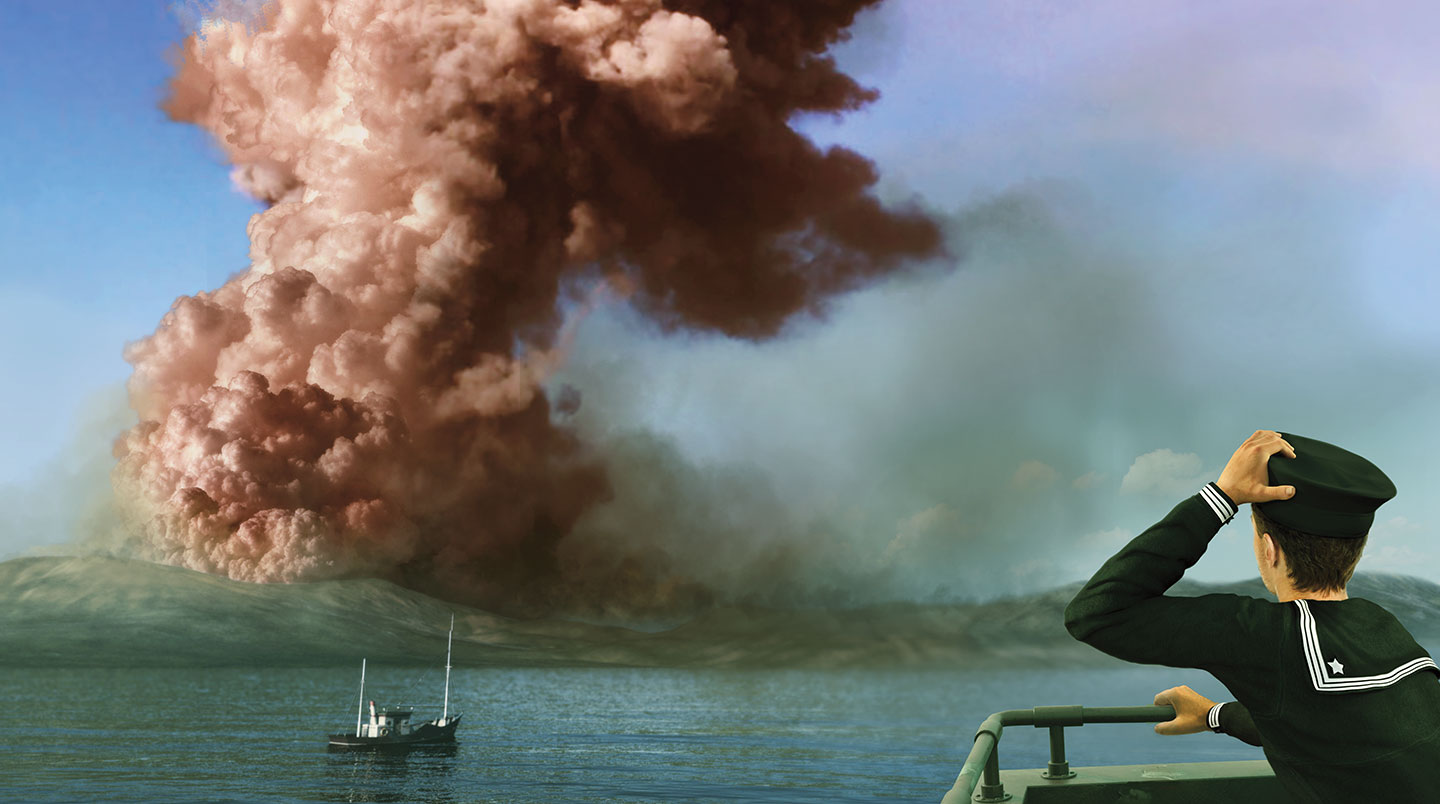Noble Driscoll
Noble Driscoll, 13, woke up in a pile of rocks and crushed concrete. Where was his family? Where were his friends? Noble thought he might be the last person alive.
It was December 6, 1917. Just minutes before, it had been a normal day in Halifax and Dartmouth—two cities in Nova Scotia [SKOH-shuh], Canada. These cities sat on the Atlantic Ocean and were separated by a narrow harbor.
Earlier that morning, a low mist hung over the water. And people were busy in Noble’s neighborhood in Halifax. Moms served up bowls of oatmeal. Kids gathered their schoolbooks. Dads went to work. Factories made flour and beer. At the harbor, men carried cargo onto giant ships.
Noble could see the harbor from his backyard. He loved to watch the ships pass by. Most belonged to the military. They were carrying supplies to World War I—a terrible war in Europe. Millions of soldiers had already died there in bloody battles.
Noble Driscoll woke up in a pile of rocks. He was 13 years old. He wondered: Where was his family? Where were his friends? Was everyone dead?
It was December 6, 1917. It had started as a normal day in Halifax and Dartmouth. These are two cities in Nova Scotia [SKOH-shuh], Canada. These cities sit on the Atlantic Ocean. They are separated by a narrow harbor.
Noble lived in Halifax. That morning, moms made breakfast. Kids gathered their schoolbooks. Dads went to work. Factories made flour and beer. At the harbor, men carried cargo onto big ships.
Noble could see the harbor from his backyard. He loved to watch the ships pass by. Most were military ships. They were headed to Europe. A terrible war was being fought there. It was called World War I.
It was December 6, 1917. Noble Driscoll woke up in a pile of rocks and crushed concrete. The 13-year-old wondered where his family and friends were—he feared that he might be the last person alive.
Just minutes earlier, the day had been a normal one in Halifax and Dartmouth. These two cities—located in Nova Scotia [SKOH-shuh], Canada—sit on the Atlantic Ocean and are separated by a narrow harbor.
Earlier that morning, a low mist hung over the water. People in Noble’s neighborhood in Halifax went about their usual routines—moms served up bowls of oatmeal, kids gathered their schoolbooks, and dads went to work. Some were employed by factories that produced flour and beer. Others worked at the harbor, carrying cargo onto giant ships.
Noble enjoyed watching the ships pass by in the harbor, which was visible from his backyard. Most were military ships, carrying supplies and soldiers to World War I—a terrible war in Europe that had already seen millions of casualties.

